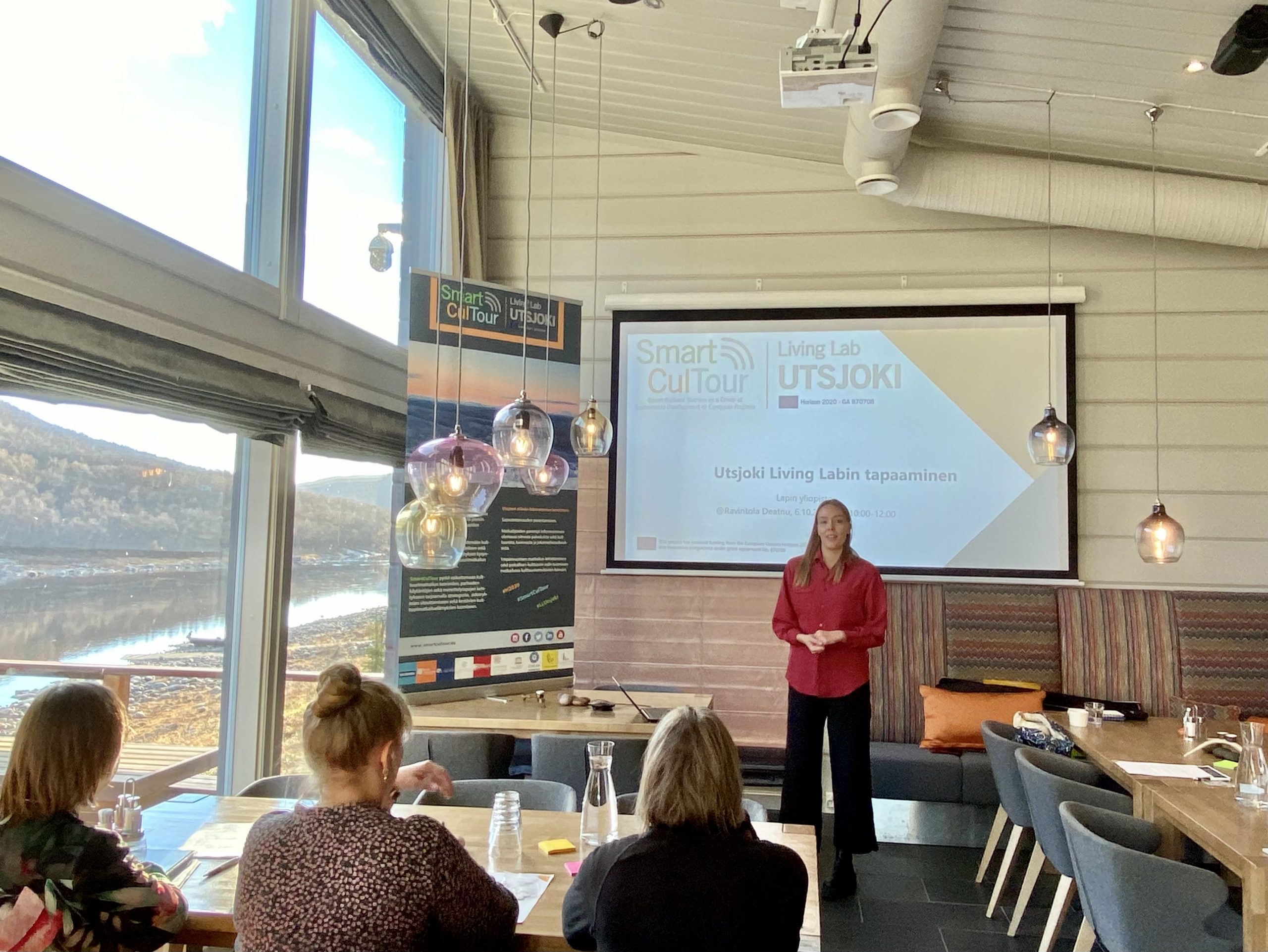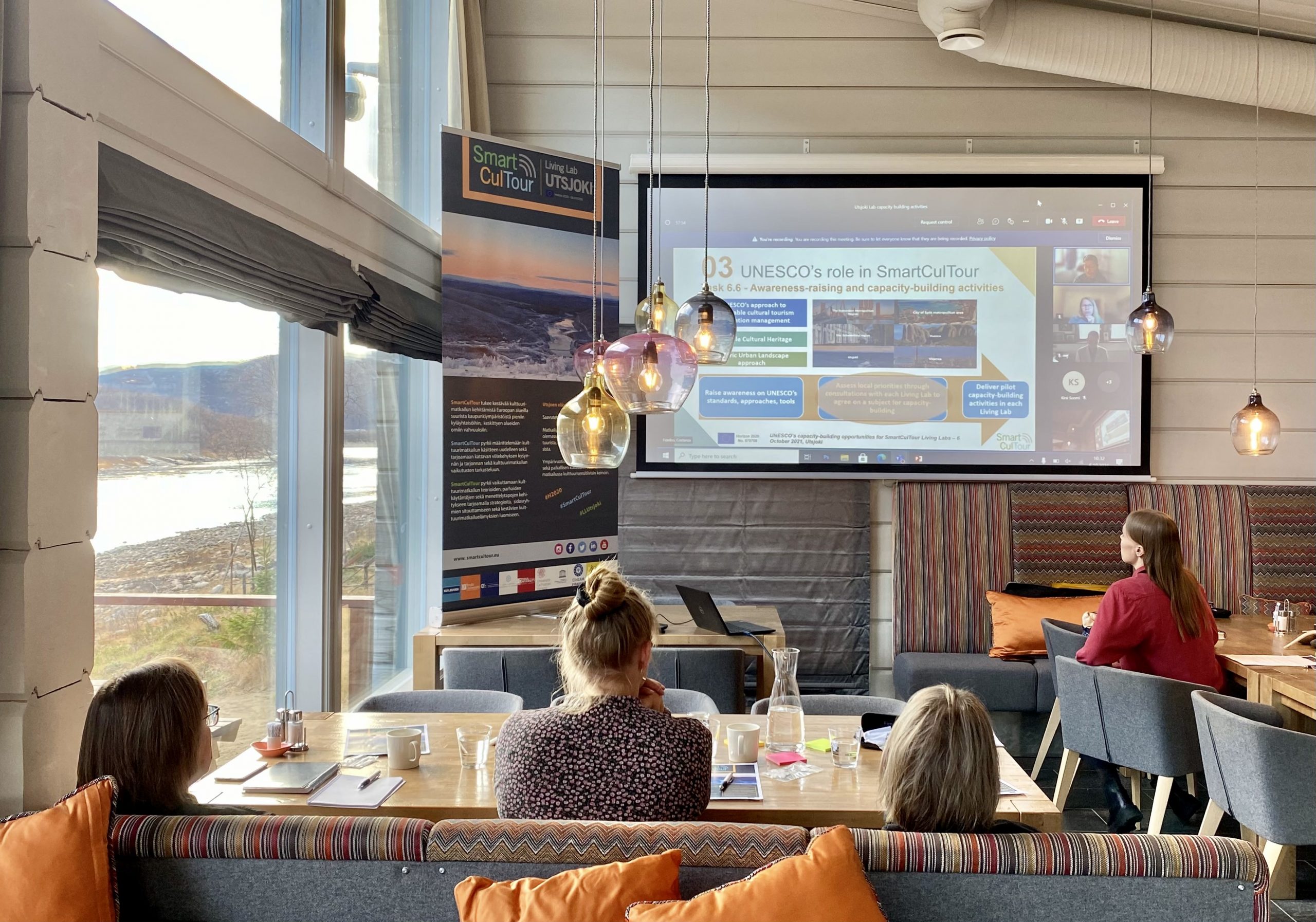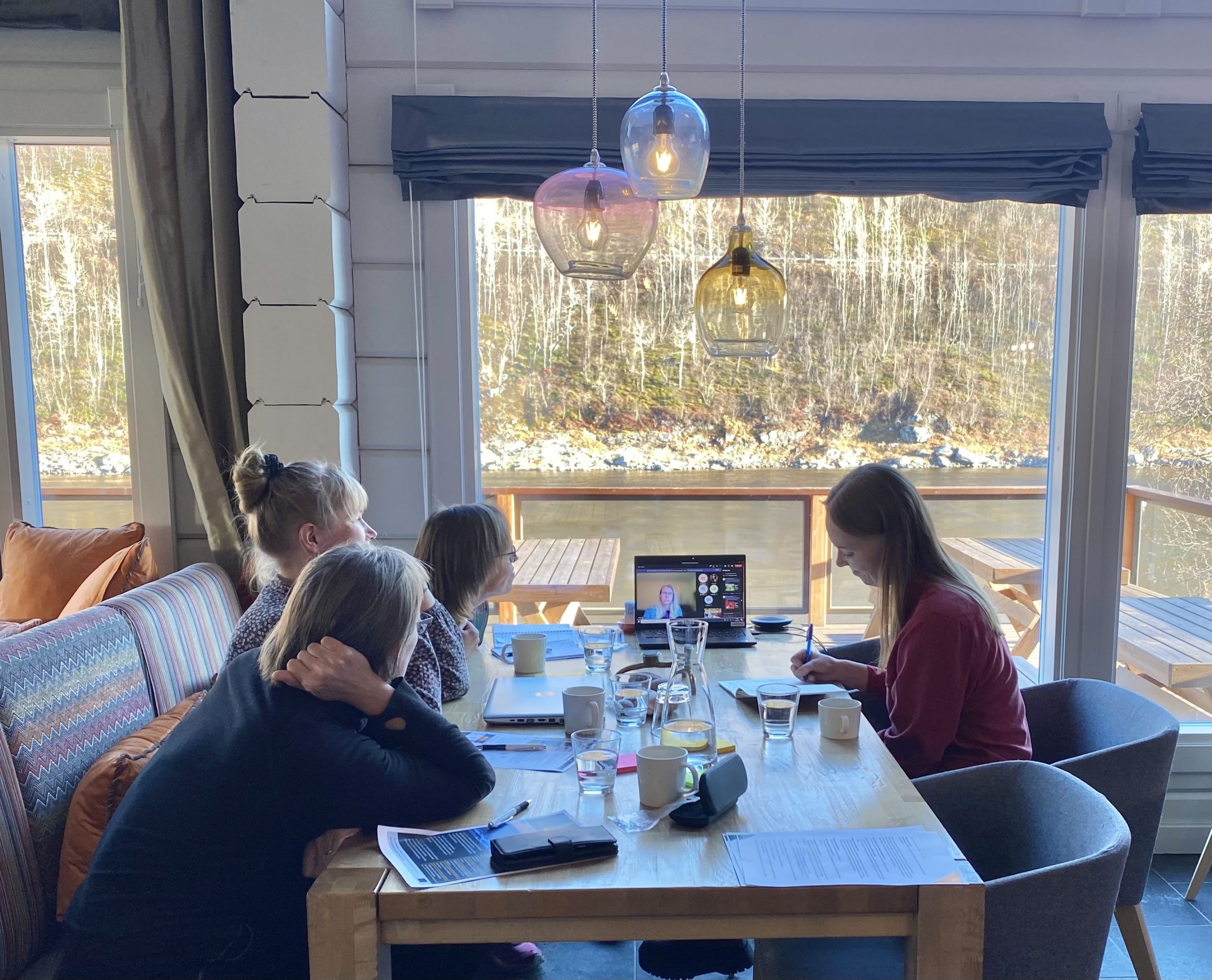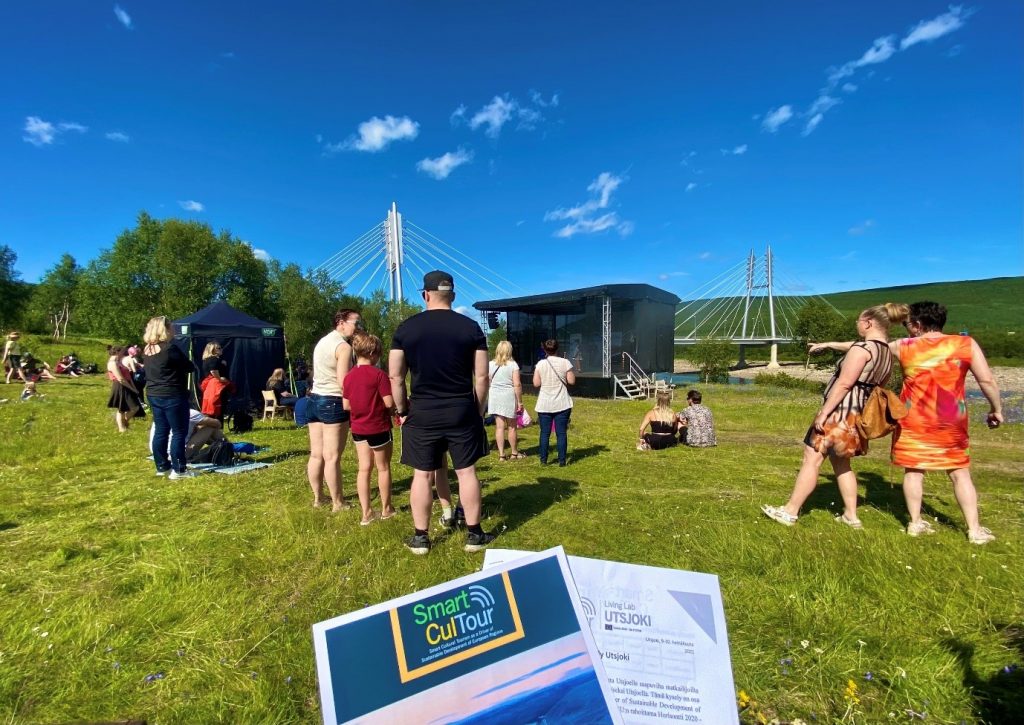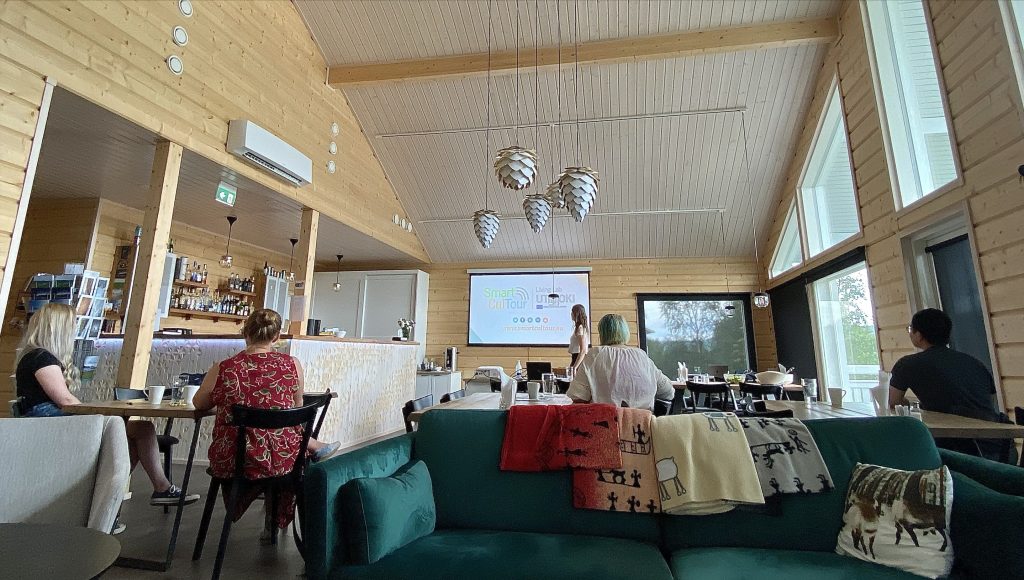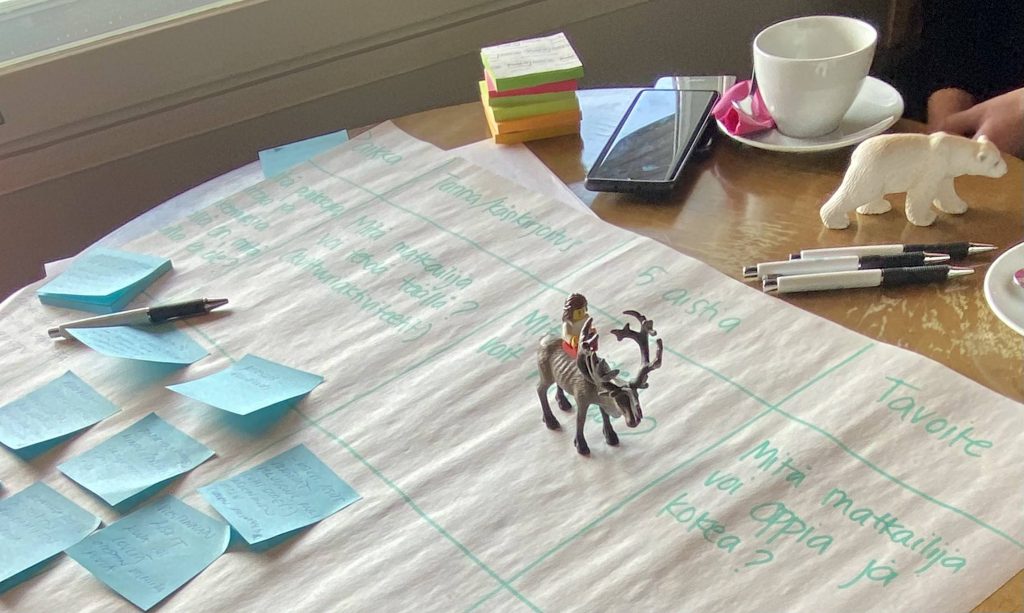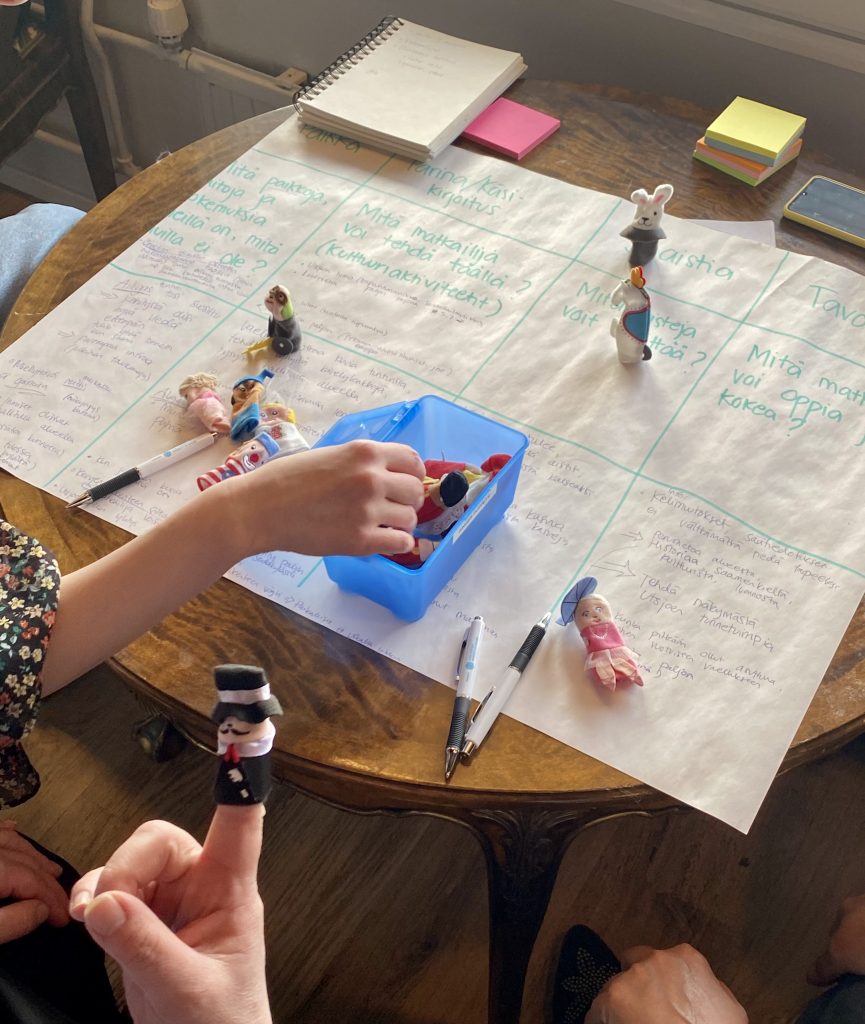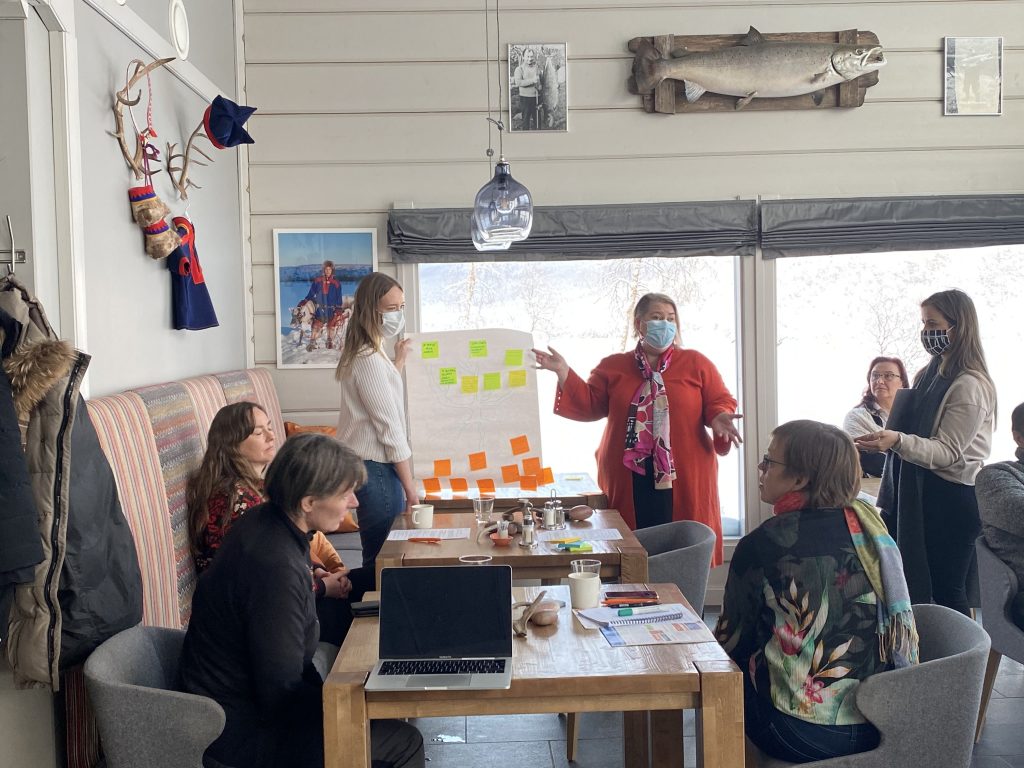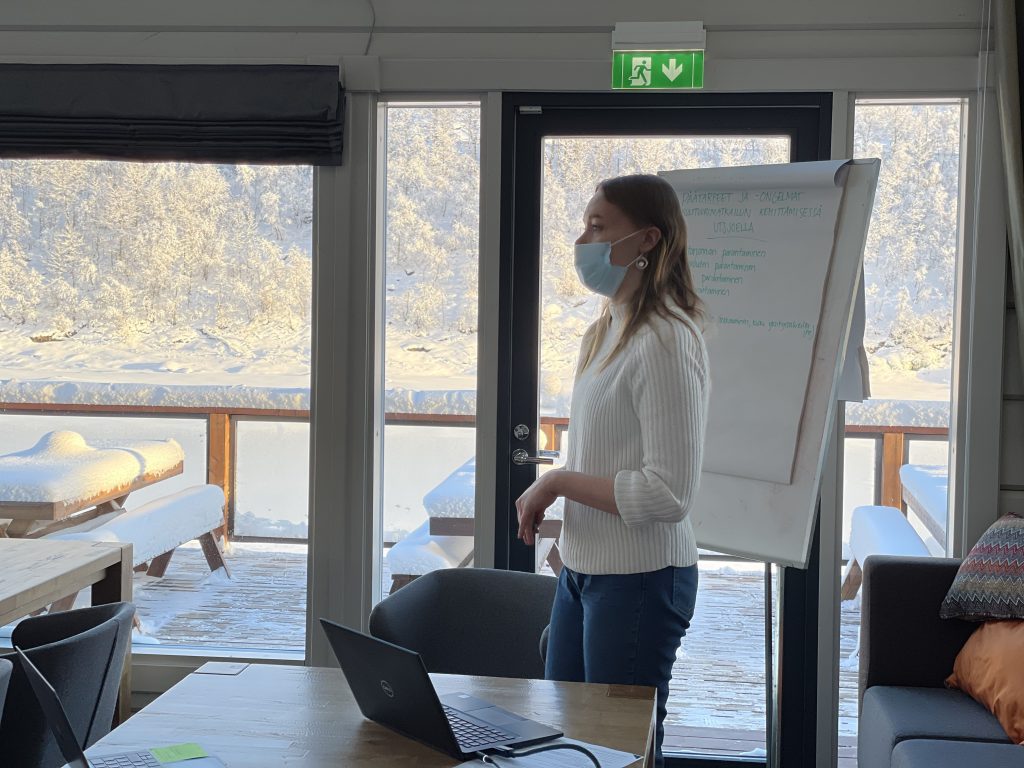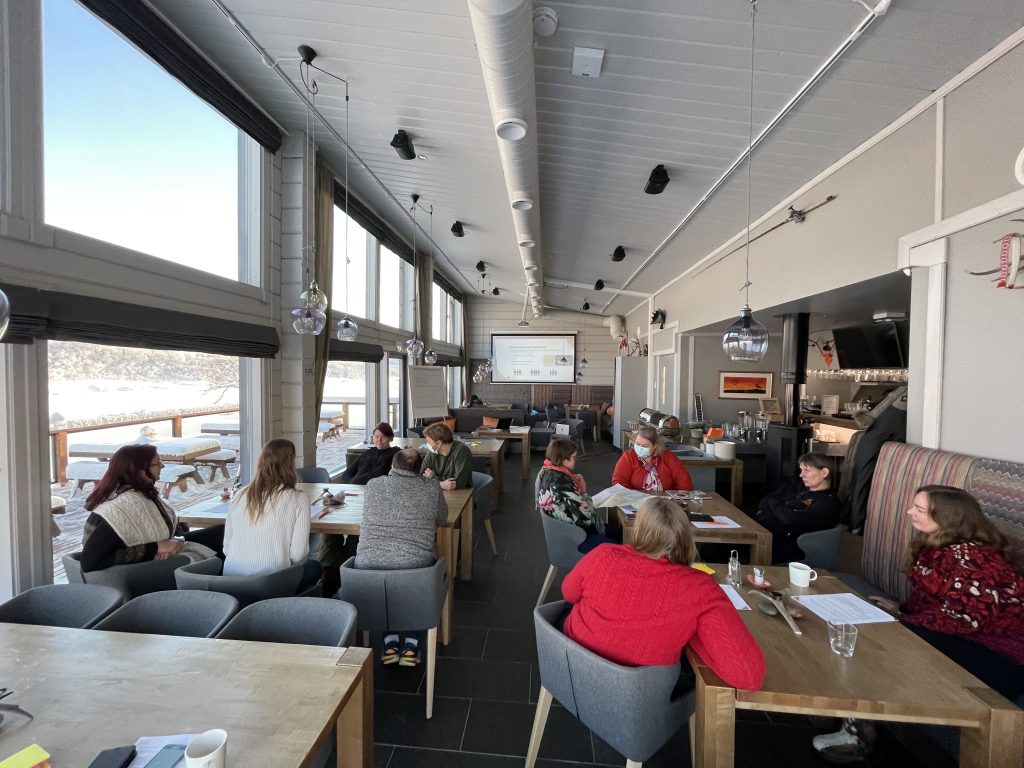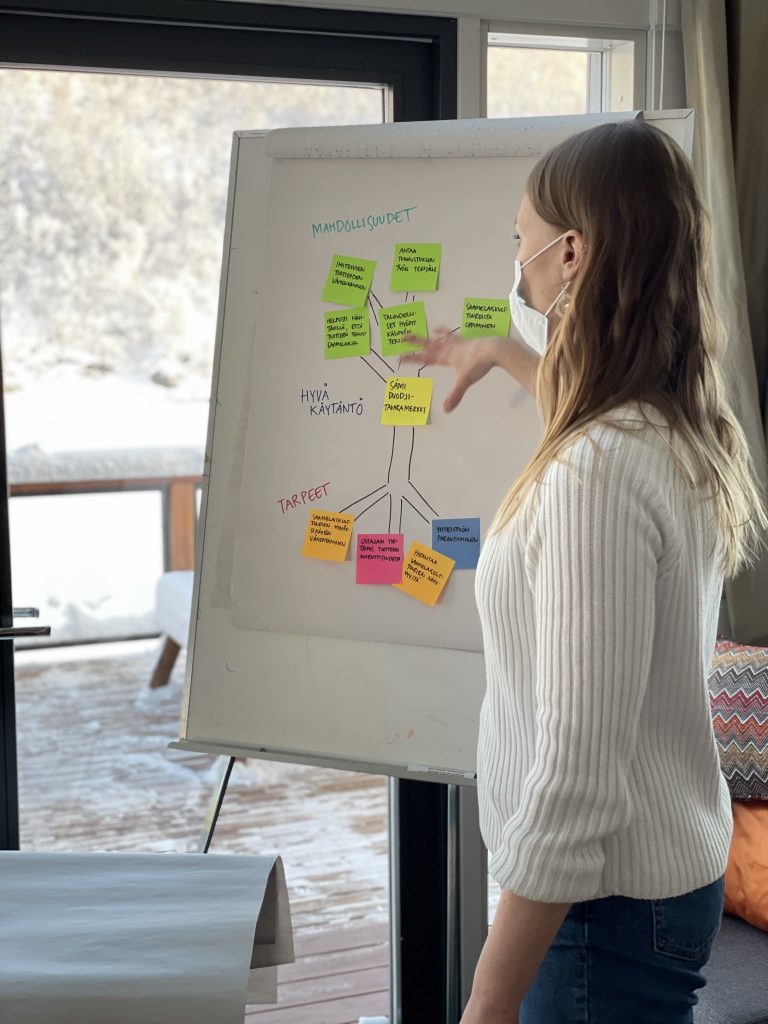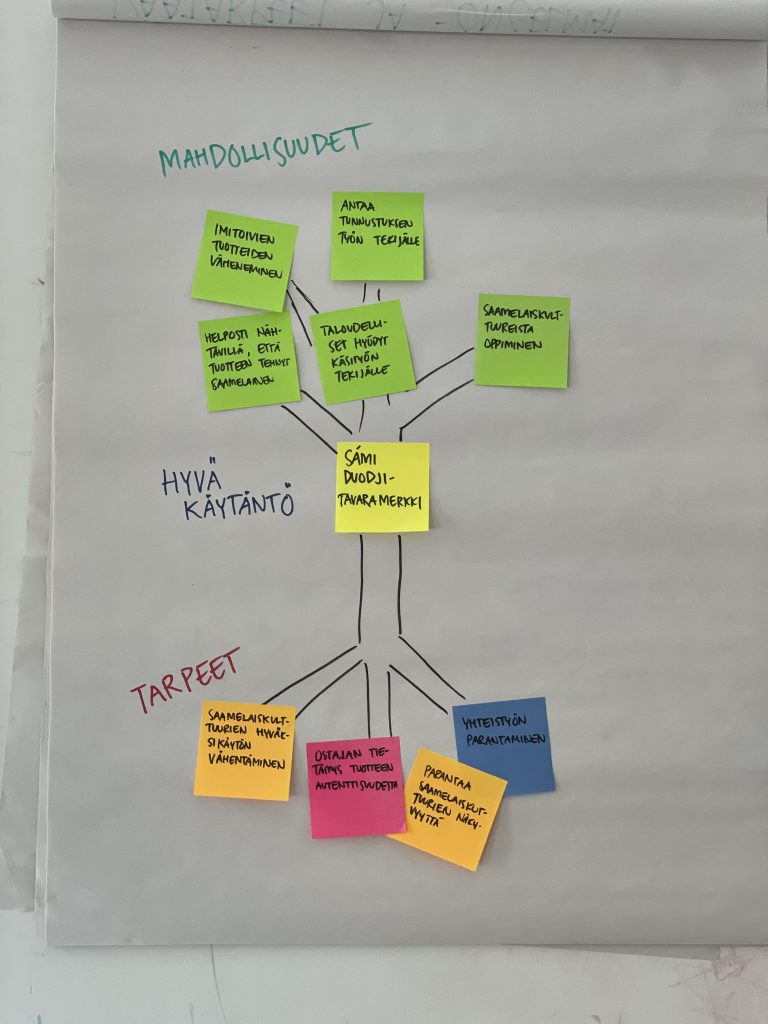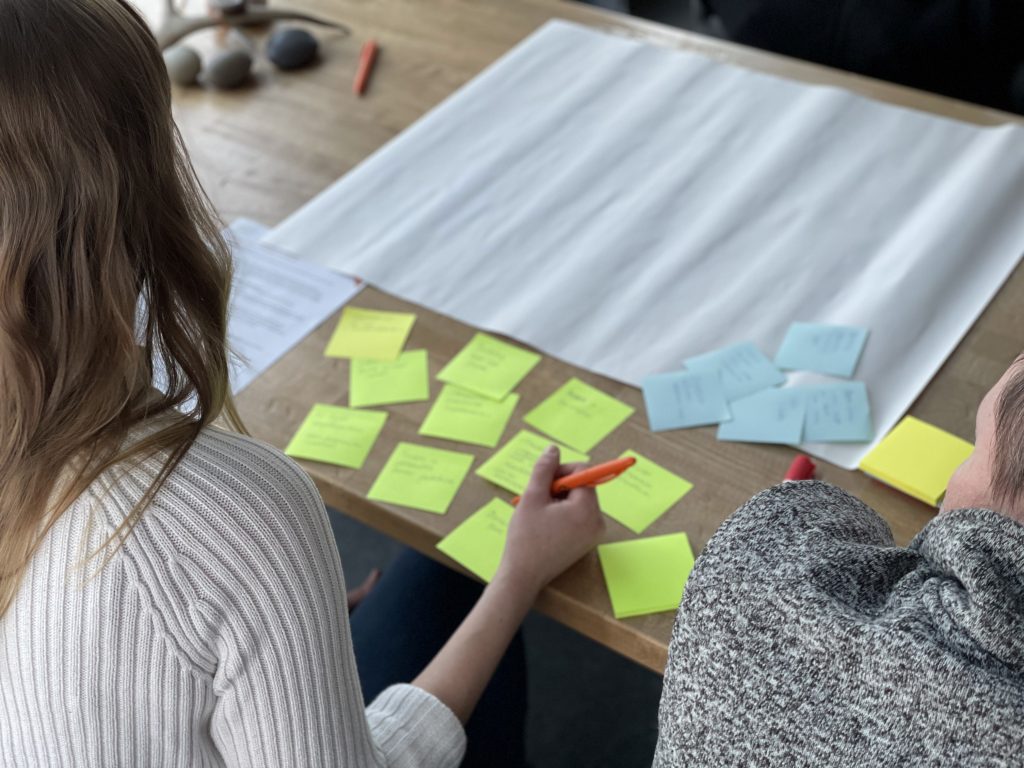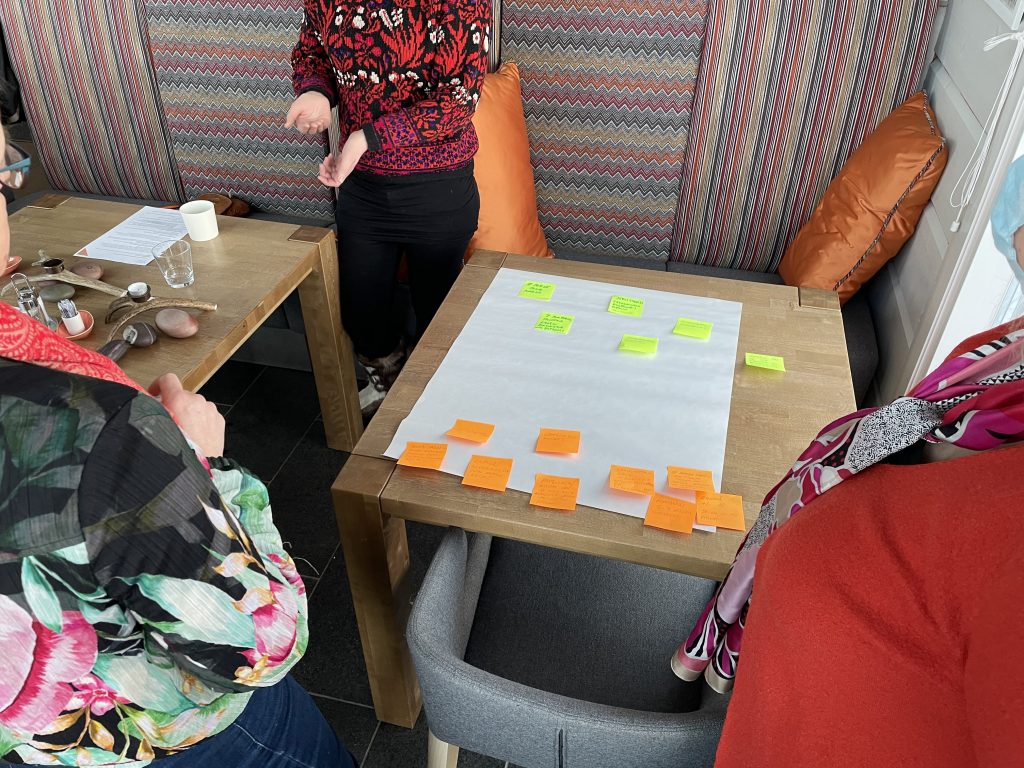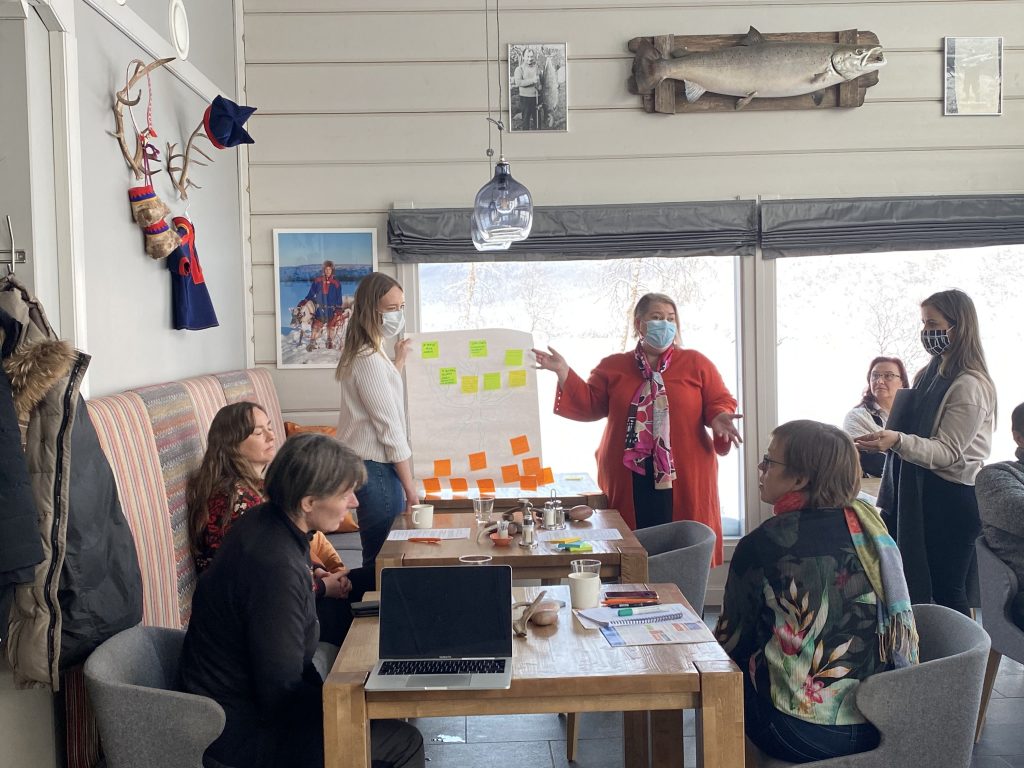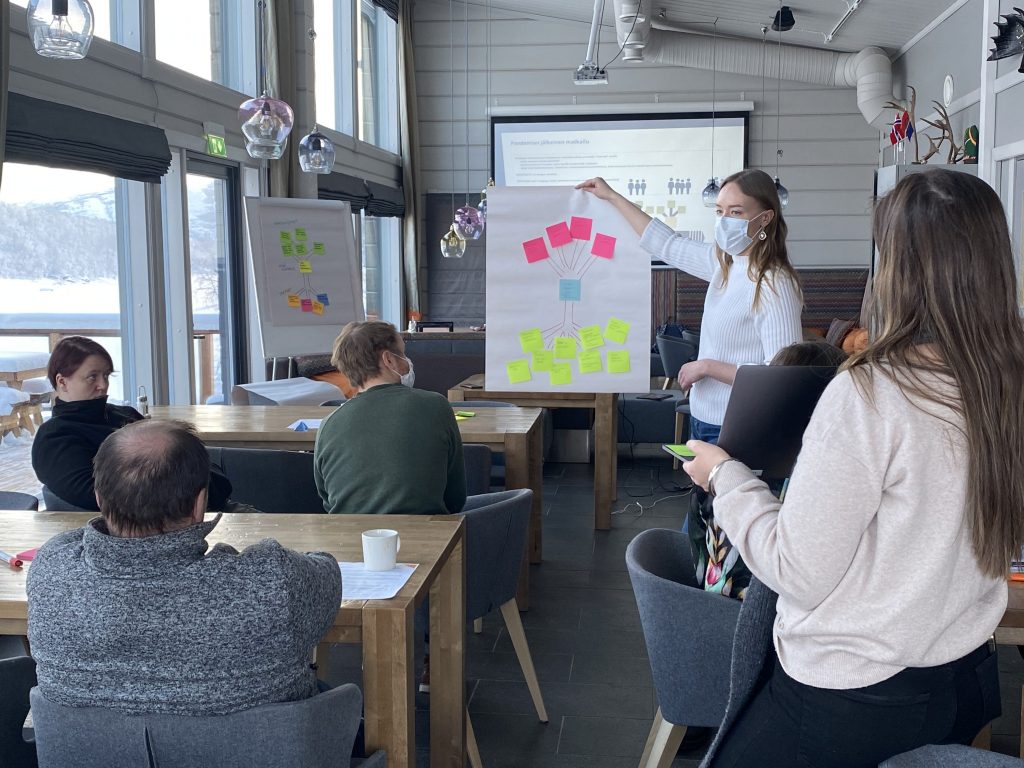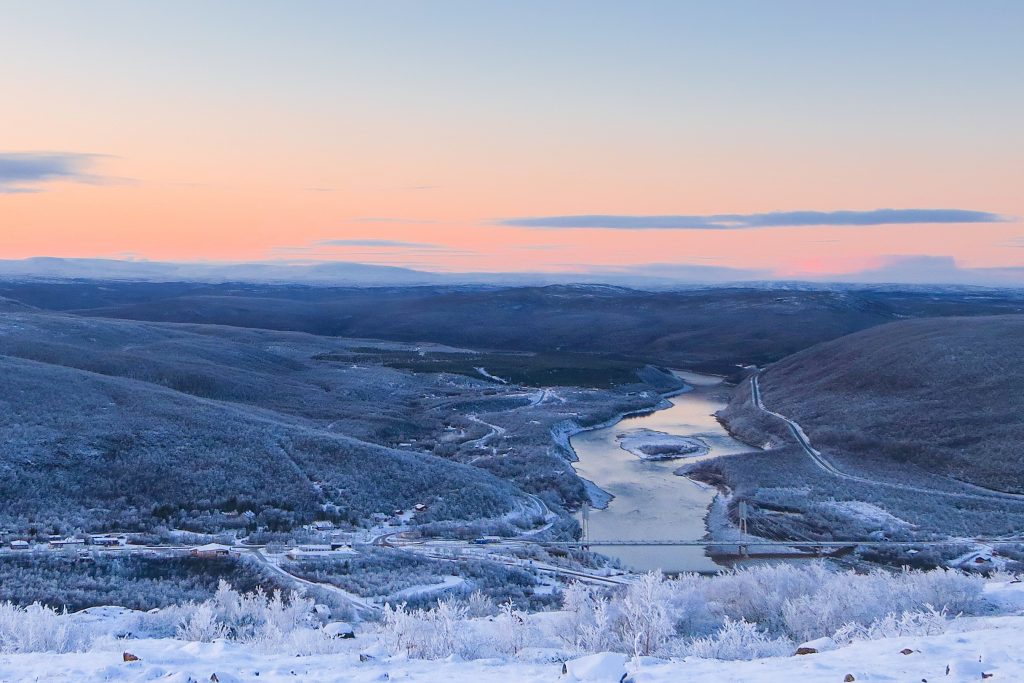SmartCulTour-hanke selvitti heinäkuussa Utsjoella matkailijoiden matkustustottumuksia sekä kysyntää kulttuuripalveluille matkan aikana.
Utsjoella tehty kävijäkysely oli pienimuotoinen, mutta toi esiin matkailijoiden toiveita kulttuurimatkailuun liittyen. Kyselyä suunniteltiin yhdessä paikallisten kanssa, ja he esittivät näkemyksiään koskien matkailun tämänhetkistä tilannetta Utsjoella. Heinäkuu on perinteisesti ollut Utsjoen matkailun sesonkiaikaa, mutta kesä 2021 oli erilainen lohen kalastuksen rajoituksista sekä koronapandemiasta johtuen. Matkailualan yrittäjien mukaan matkailijoita on kuitenkin ollut yllättävän paljon ja määrät ovat liikkuneet miltei samoissa lukemissa kuin edellisvuosina.
Kävijäkyselyyn vastasi yhteensä 12 matkailijaa, joista kahdeksan oli miehiä ja neljä naisia. Vastaajat olivat pääasiassa 9.7. järjestetyn Utsjoen Lumo -tapahtuman osallistujia, lukuun ottamatta kolmea vastaajista, jotka vastasivat kyselyyn tapahtuman ulkopuolella. Tapahtuma piti sisällään muun muassa musiikki- ja teatteriesityksiä. Vastaajat olivat iältään 28–60-vuotiaita. Lukuun ottamatta yhtä kiinalaismatkailijaa, kaikki vastaajat olivat suomalaisia. Vastaajat matkustivat joko perheen, ystävien tai kumppanin kanssa. Osalle vastaajista Utsjoki oli matkan lopullinen kohde, kun taas osa matkasi Utsjoelta vielä Norjaan tai muualle Suomeen.
Paikallinen kulttuuri, elinkeinot ja luonto kiinnostavat Utsjoelle tulevia matkailijoita
Kyselyssä kysyttiin kulttuuritarjonnan merkitystä matkailijoille matkakohteessa. Yksi vastaajista piti kulttuuritarjontaa erittäin tärkeänä, viisi tärkeänä ja viisi keskimäärin tärkeänä matkakohteessa. Kuuden vastaajan mukaan kulttuuri oli osasyy matkustaa Utsjoelle. Kulttuuri, josta vastaajat ovat kiinnostuneita on paikallinen ruoka, perinteinen saamelainen musiikki, käsityöt, Utsjoen Lumo-festivaalitapahtuma, kalastus, urheilu, paikallinen arki ja saamelaiskulttuuri yleisimminkin. Kuusi vastaajista ei pitänyt kulttuuria isona osana matkaansa. Utsjoki onkin ollut ennen muuta kalastus- ja luontomatkailukohde.
Matkailijat olivat pääsääntöisesti kiinnostuneita tietämään enemmän Utsjoesta sekä Utsjoen paikallisesta kulttuurista, kun taas neljä vastaajista ei ollut kiinnostunut tietämään lisää. Vastaajat olivat erityisen kiinnostuneita saamaan tietoa majoituspalveluista, kalastuksesta, paikallisista elinkeinoista, arkielämästä, saamelaiskulttuurista ja perinteistä. Luonto, näköalapaikat, puhtaus, porot, Tenojoki, lohi, maisemat, tunturit, vaellus, sijainti, Norjan läheisyys, kulttuuri ja Utsjoen historia, paikallinen ruoka ja tapahtumat ovat valttikortteja, joita Utsjoki voisi hyödyntää enemmän matkailumarkkinoinnissaan.
Koronapandemian vaikutus matkustustottumuksiin
Puolet vastaajista mainitsi matkustustottumustensa muuttuneen koronapandemian myötä, ja kotimaan matkailu on suosiossa tällä hetkellä. Myös pienemmät kohteet kiinnostavat enemmän kuin aiemmin. Yksi vastaajista mainitsi, että tämä oli ensimmäinen kerta, kun he matkustavat Lappiin, aiemmin on matkustettu ulkomaille. Osa vastaajista mainitsi matkustaneensa myös aiemmin Suomessa, mutta nyt Suomi ja Suomen luonto kiinnostavat erityisen paljon. Yksi vastaajista mainitsi koronan myötä tekevänsä vaellusretkiä, ottaneensa etäisyyttä ihmisiin sekä tukevansa enemmän paikallisia ostamalla tuotteita ja palveluita paikallisilta. Kahden vastaajan matkustustottumukset eivät ole muuttuneet koronapandemian aikana. Kaikkien vastaajien mukaan Utsjoki on turvallinen matkakohde.
Luonto ja kulttuuri kulkevat käsi kädessä
Kaunis luonto, Teno-joki ja Norjan läheisyys ovat Utsjoen suurimpia matkailuvaltteja. Kehittämisen varaa mainittiin olevan palvelujen tarjonnassa sekä Internetyhteyksissä. Kulttuuri, erityisesti paikalliseen arkeen ja saamelaiskulttuuriin tutustuminen, kiinnostaa kyselyyn vastanneita matkailijoita. Vaikka kaikki vastaajista eivät nähneet kulttuurilla suurta roolia matkan aikana, luontoa ja kulttuuria voidaan silti tarkastella yhdessä ja luontopalveluja pitää osana kulttuuria, sillä saamelaisen luontokäsityksen mukaan luonto ja kulttuuri ovat vahvasti sidoksissa toisiinsa.
Luonnon ja kulttuurin yhteenkietoutumisen esiintuominen voisi olla yksi keino vastata Utsjoella vierailevien kulttuurimatkailijoiden tarpeisiin. Koronapandemian vuoksi suomalaiset matkailijat ovat matkustaneet viime aikoina lähinnä Suomessa, ja Utsjoki houkutteleekin nyt erityyppisiä matkailijoita verrattuna edellisiin kesiin, jolloin matkailu on pääasiassa keskittynyt kalastusmatkailuun.
SmartCulTour-hankkeen tavoitteena on tukea kestävää kulttuurimatkailun kehittämistä Euroopan eri alueilla keskittyen niin pienempiin kyläyhteisöihin kuin suurempiin kaupunkiympäristöihin. Hankkeen partnereina toimii useita Euroopan yliopistoja, alueellisia säätiöitä sekä UNESCO. Suomesta mukana hankkeessa ovat Lapin yliopisto ja Utsjoen kunta.


